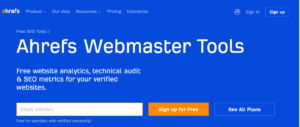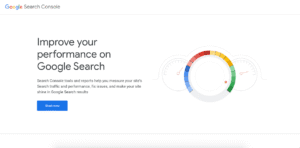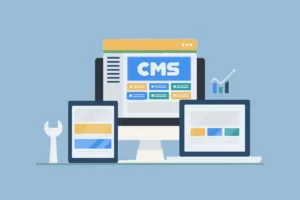Learning Search Engine Optimization (SEO) might sound like a complex labyrinth, especially for new online businesses, but it’s far from impossible. In fact, understanding Beginner SEO for WordPress is the ultimate key to making your website easily discoverable on Google. By grasping these fundamental concepts, you can significantly boost your site’s visibility, attract more potential visitors, and ultimately, drive sales.
You might be thinking, “Isn’t SEO just for tech wizards or huge corporations?” Not at all! For any aspiring or new online entrepreneur, learning SEO is incredibly vital. Here’s why:
- Long-Term Investment: SEO results aren’t instant, but their effects are enduring, providing continuous benefits for your business long after the initial effort.
- Cost-Effective: Compared to paid advertising, SEO is a more budget-friendly strategy that delivers sustainable, organic results.
- Learnable Skill: You don’t need to be an IT guru to master SEO. There are abundant free resources available, and with a WordPress site, many tools make it even easier.
- Competitive Edge: A solid understanding of SEO allows you to effectively compete with established players in the online arena.
In this comprehensive guide, we’ll cover everything you need to know about SEO, from its foundational principles to actionable strategies. Ready to dive in? Let’s get started!
What is SEO and Why is it Crucial for Your Online Business?
SEO, or Search Engine Optimization, refers to a set of strategies designed to improve your website’s ranking in search engines like Google. Simply put, SEO helps your WordPress site appear on the first page of search results when someone searches for keywords relevant to your business.
Beyond just ranking high, SEO offers a wealth of benefits that are simply too valuable to miss:
- Boosts Website Visibility: The easier your website is to find on Google, the more people will discover your business.
- Increases Organic Traffic: SEO attracts visitors who are genuinely interested in your products or services, not just random clicks. This means higher quality leads!
- Higher Conversion Rates: Visitors arriving from organic search results tend to be more qualified and have a stronger intent to purchase.
- Builds Brand Awareness: Consistent high rankings in search results naturally strengthen your brand’s presence and recognition among consumers.
- Enhances Credibility: Websites that appear on Google’s first page are often perceived as more trustworthy and authoritative by users.
Ultimately, mastering SEO significantly increases your chances of gaining more customers and boosting sales. Now, let’s explore the first crucial step.
Phase 1: Keyword Research

Keyword research is arguably the most fundamental and vital step in any SEO strategy. Why? Because effective keyword research reveals exactly what your target audience is searching for on Google. This insight allows you to create highly relevant content that has the potential to rank at the top of search results.
Why Ahrefs Keyword Generator Excels for Beginners
While many keyword research tools exist (like Ubersuggest and Google Keyword Planner), Ahrefs Keyword Generator offers several distinct advantages that make it particularly beginner-friendly:
- Free and Easy to Use: Ahrefs Keyword Generator provides robust keyword research features completely free, without the usage limits often found in other tools.
- Accurate & Comprehensive Data: Ahrefs boasts an extensive and continuously updated keyword database, providing highly accurate and comprehensive data. Unlike Google Keyword Planner, which often provides vague search volume ranges unless you’re running ads, Ahrefs aims for more precise figures.
- Rich Features: Beyond just search volume, Ahrefs Keyword Generator offers other crucial information such as keyword difficulty, potential traffic, and related keyword ideas.
How to Use Ahrefs Keyword Generator
Using Ahrefs Keyword Generator is straightforward, even for absolute beginners. Simply enter the keyword you want to analyze, select your target country or region, and Ahrefs will display a list of related keywords along with important data like search volume, difficulty, and traffic potential.
Tips for Choosing the Right Keywords
Keep these tips in mind when selecting your keywords:
- Focus on Long-Tail Keywords: These are phrases of three or more words. They typically have lower competition and are easier to rank for, attracting highly specific searches.
- Prioritize Relevance: Choose keywords that genuinely align with your products or services and are actively searched for by your target audience.
- Consider Keyword Competition: Don’t get overly ambitious with highly competitive keywords right away. Opt for keywords that are realistic for you to rank for given your current site authority.
By utilizing Ahrefs Keyword Generator and following these tips, you can uncover the perfect keywords to optimize your website and significantly improve your search engine visibility.
Phase 2: Competitor Research

Once you’ve identified your target keywords, it’s time to peek at your competitors’ strategies. Competitor research helps you understand what others in your niche are doing well and identify untapped opportunities you can leverage.
How to Use Ahrefs SERP Checker
Ahrefs SERP Checker is an invaluable tool for analyzing competitor websites that rank high in search results. With this tool, you can:
- Identify your competitors’ strengths and weaknesses.
- Discover keyword opportunities they might have missed.
- Gain inspiration for your own content and SEO strategies.
Tips for Effective Competitor Research
- Focus on Direct Competitors: Don’t get overly fixated on large, established companies. Concentrate on competitors similar in size and target market to yours.
- Analyze Their Content, Backlinks, and SEO Strategy: Dive deep into what makes their content engaging, where they’re acquiring backlinks from, and what SEO tactics they’re employing.
- Identify Success Factors: Pinpoint the key elements contributing to your competitors’ success, then brainstorm how you can adapt and implement similar strategies on your own website.
Phase 3: On-Page SEO Optimization
After thorough keyword and competitor research, we move to the more technical aspect: On-Page SEO Optimization. On-page SEO involves optimizing elements within your website to make them more search engine and user-friendly.
Key Elements in On-Page SEO
Several critical elements demand your attention for effective on-page SEO:
- Title Tag and Meta Description: The title tag is your page’s title displayed in Google search results, while the meta description is a brief summary. Ensure both contain relevant keywords and are compelling enough to attract clicks.
- Header Tags (H1, H2, H3, etc.): Header tags break down your content into digestible sections and indicate information hierarchy. Use relevant keywords within your header tags to help search engines understand your content’s structure.
- High-Quality, Relevant Content: Content is king in SEO. Ensure your content is informative, valuable, and directly relevant to your target keywords. Use easy-to-understand language and avoid plagiarism.
- Image Optimization: Beyond text, images also need optimization to prevent slowing down your website. Use descriptive alt text, compress image file sizes, and choose appropriate file formats (like JPEG or PNG).
- Internal Linking: Internal links connect one page to another within your own website. This helps search engines understand your site’s structure and improves user navigation.
How Yoast SEO Helps Your WordPress Site
Yoast SEO is an incredibly popular WordPress plugin that simplifies on-page SEO optimization for your website. With Yoast SEO, you can:
- Easily set your title tag and meta description.
- Analyze your content’s readability.
- Optimize keyword usage within your text.
- Monitor the SEO score for each page.
Phase 4: Off-Page SEO Optimization
Beyond on-page optimization, there’s Off-Page SEO, which focuses on enhancing your website’s reputation and authority in the eyes of search engines. A crucial factor in off-page SEO is backlinks.
What is Off-Page SEO?
Off-page SEO encompasses all optimization efforts performed outside your website to improve its search engine ranking. This includes building backlinks, increasing social media presence, and participating in online forums.
The Importance of Backlinks in Off-Page SEO
Backlinks are links from other websites that point to your website. They are considered “votes of confidence” from other sites, indicating that your website has quality and relevant content. The more high-quality backlinks you acquire, the higher your website’s authority will be perceived by search engines.
How to Use Ahrefs Backlink Checker
Ahrefs Backlink Checker is a useful tool for analyzing your competitors’ backlinks. With this tool, you can:
- See where your competitors are getting their backlinks from.
- Discover opportunities to acquire valuable backlinks for your own site.
- Monitor the growth of your website’s backlink profile.
Strategies for Building Backlinks
Here are some strategies you can use to build backlinks:
- Guest Blogging: Write guest articles for other websites in your niche and include a link back to your site.
- Broken Link Building: Find broken links on other websites and offer your relevant content as a replacement.
- Content Marketing: Create high-quality, shareable content that naturally attracts links from others.
- Influencer Outreach: Build relationships with influencers in your niche and ask them to share or link to your content.
Phase 5: Technical SEO Optimization
Technical SEO focuses on your website’s infrastructure. Optimizing technical SEO ensures your website is easily accessible, crawlable, and indexable by search engines.
What is Technical SEO?
Technical SEO covers various aspects, such as website speed, mobile-friendliness, website structure, website security (HTTPS), XML sitemaps, and robots.txt files.
Key Elements in Technical SEO
- Website Speed: A slow website frustrates users and significantly increases bounce rates (the percentage of visitors who leave your site after viewing only one page).
- Mobile-Friendliness: With more people accessing the internet via mobile devices, your website must be responsive and easy to use across various screen sizes.
- Website Structure: A well-organized website structure makes it easier for search engines to crawl and understand your content.
- Website Security (HTTPS): HTTPS is a security protocol that encrypts data transmitted between your website and users. Google favors websites that use HTTPS.
- XML Sitemap and robots.txt: An XML sitemap lists all pages on your website, while robots.txt is a file that tells search engines which pages to crawl and which to ignore.
How to Use Ahrefs Webmaster Tools
Ahrefs Webmaster Tools is a free, incredibly useful tool for analyzing and monitoring the technical SEO aspects of your website. With this tool, you can:
- Analyze technical issues like broken links, 404 errors, website speed, and crawling problems.
- Monitor your website’s overall SEO performance.
- Receive recommendations for improvements to boost your site’s SEO performance.
Phase 6: Monitoring SEO Performance
SEO is an ongoing journey, not a one-time task. Therefore, continuously monitoring your website’s SEO performance is crucial. This helps you understand which strategies are working and which need adjustment.
Why Monitoring SEO Performance is Essential
Monitoring SEO performance helps you:
- Determine if your SEO strategies are effective.
- Identify potential issues as they arise.
- Measure your website’s SEO progress.
- Make data-driven decisions for future optimizations.
How to Use Google Search Console
Google Search Console is a free tool from Google that provides vital information about your website’s performance in Google search results. With Google Search Console, you can:
- Monitor your website’s organic traffic.
- Analyze your keyword performance.
- Identify crawling and indexing issues.
- Receive improvement recommendations directly from Google.
Tips for Monitoring SEO Performance
- Set Clear Goals: What do you aim to achieve with SEO? Is it increased traffic, higher keyword rankings, or more conversions?
- Monitor Regularly: Don’t just glance at data occasionally. Monitor your website’s SEO performance routinely, perhaps weekly or monthly.
- Adjust Strategy as Needed: If you observe a performance decline, immediately analyze it to find the cause. Then, adjust your SEO strategy as necessary.
Conclusion
Learning and implementing SEO certainly requires time and consistent effort, but the rewards you reap will be well worth it. By applying the steps outlined above, you can significantly optimize your WordPress website to be more easily found on Google and attract a higher volume of potential visitors.
Remember, SEO is a long-term investment. Don’t expect instant results, but remain committed to learning and consistently applying your SEO strategies. Gradually, you’ll witness steady and sustained improvements in your website’s performance.
If you’re looking for professional assistance to implement these SEO strategies on your WordPress website, or need a custom-built, SEO-friendly site from the ground up, don’t hesitate to reach out! As an experienced WordPress developer, I can help you translate these SEO principles into tangible results for your business.










